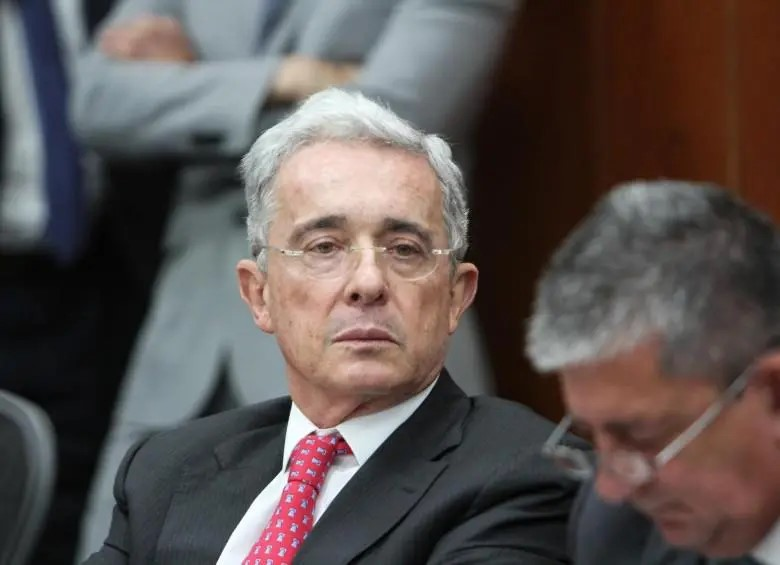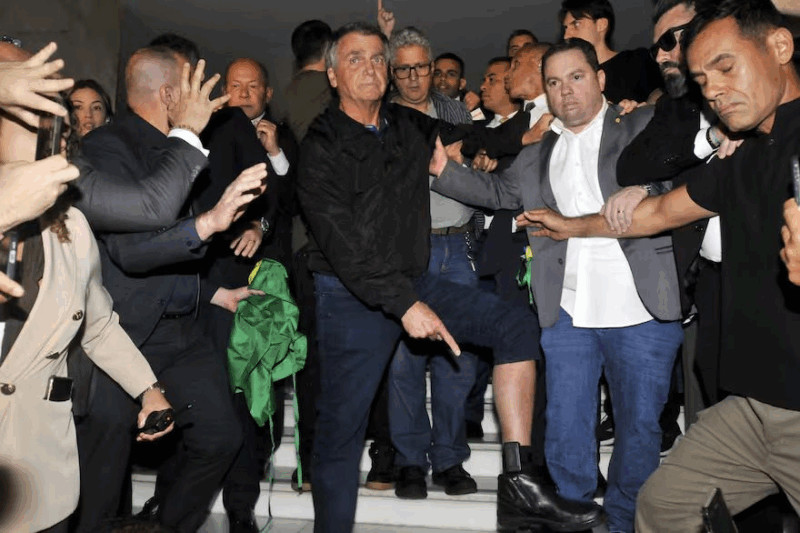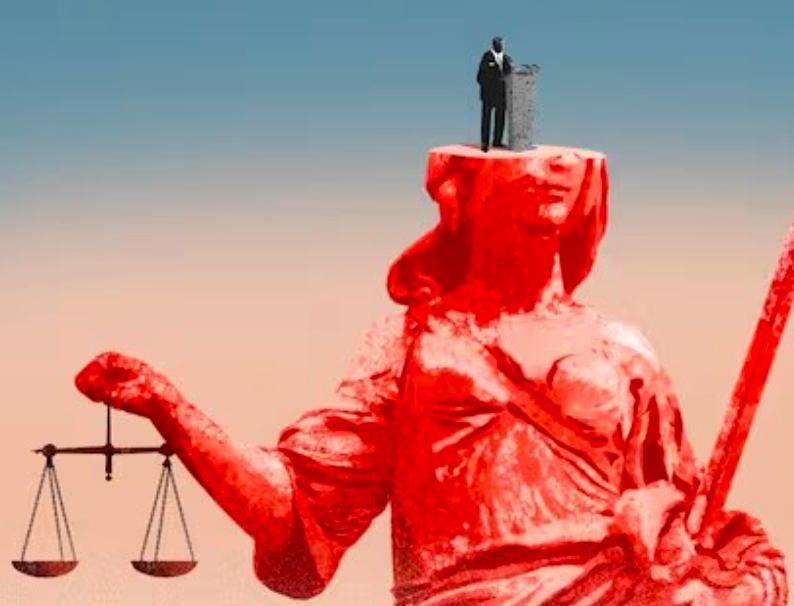Recent examples of US interventions into Latin American countries’ judicial systems.
Recent examples of US interventions into Latin American countries’ judicial systems.
By Héctor Bernardo*.
Marco Rubio’s pressure to stop the convictions against Álvaro Uribe Vélez in Colombia and Jair Bolsonaro in Brazil, Peter Lamelas’s statements against Cristina Fernández in Argentina, and the attacks on Mexico’s judicial reform highlight Washington’s relentless efforts to consolidate its control over Latin America’s judiciaries.
The US strategic retreat requires complete control of the area it considers its “backyard.” A trench that stretches from south of the Rio Grande to Tierra del Fuego and must be impassable to sustain its geopolitical interests. One of the key tools for this is control of the judicial structures.
Much of the region’s judicial powers already respond to Washington’s interests – directly or through alliances with the local oligarchies that control them – and this is clearly reflected in the lawfare cases against Luiz Inácio Lula da Silva in Brazil, Rafael Correa in Ecuador, and Cristina Fernández in Argentina.
However, recent statements—and actions—by U.S. Secretary of State Marco Rubio, U.S. Ambassador-designate Peter Lamelas to Argentina, and President Donald Trump himself, highlight the White House’s determined efforts to expand and consolidate control over Latin America’s judiciaries.
Rubio’s already well-known attacks against the peoples and governments of Cuba, Nicaragua, and Venezuela were joined by attacks against the governments of Brazil and Colombia, and against former Argentine President Cristina Fernández de Kirchner.

Colombia
Following the ruling against former Colombian President Álvaro Uribe Vélez (2002 – 2010), who was sentenced to 12 years in prison for procedural fraud and bribery in criminal proceedings, the US Secretary of State published on his social networks that “former Colombian President Uribe’s only crime has been to fight tirelessly and defend his homeland” and added that “the instrumentalization of the Colombian judiciary by radical judges has set a worrying precedent.”
In response, Colombian President Gustavo Petro (2022-2026) asserted – also via social media X – that Secretary Rubio’s statements represented an “Interference in the judicial affairs of another country” and added: “it is an interference in national sovereignty.”
Then, at an event in Santa Marta, President Petro asked: “Why doesn’t the Constitutional Court, through its president, stand up and say that this (Colombia) country is independent and sovereign and that judges are respected here? Or have we become a colony again?” [1]
It’s worth remembering that, for decades, Colombia has been a key strategic ally of the United States. From Colombian territory, provocations and direct attacks have been carried out against governments in the region, and attempts have been made to undermine integration processes.
Many of these policies were implemented during the administrations of far-right leader Uribe Vélez, who has also been repeatedly accused of his alleged ties to drug trafficking and paramilitaries.
Álvaro Uribe Vélez is one of those responsible for what is known in Colombia as “false positives,” which is nothing more than the kidnapping and subsequent murder of civilians who were then dressed in military clothing and presented to the media as guerrillas killed in clashes with the Armed Forces. This strategy was used by the Colombian government to create the impression that it was winning the confrontation with the guerrillas. According to data published by the Special Jurisdiction for Peace (JEP), between 2002 and 2008, more than 6,400 Colombians were killed using this method. In some cases, their bodies disappeared or were buried in mass graves, and their families are still searching for them.

Brazil
The strategy of pressuring the judiciary to defend its allies or persecute those who may hinder the United States’ plans is not limited to a single country. In Brazil, faced with the progress of the case against former President Jair Bolsonaro (accused of leading a failed coup attempt), the Trump administration began its attacks against the Brazilian Supreme Federal Court judge handling the case, Judge Alexandre de Moraes, and against the government of Luiz Inácio Lula da Silva.
In response to the judge’s decision to place Bolsonaro under house arrest and subject him to the use of an electronic anklet (to prevent a flight), the US Secretary of State posted on his social media: “I have ordered the revocation of the visas of Moraes and his allies in the Court, as well as their immediate family members, effective immediately.”
Rubio argued that “the political hunt by Judge Alexandre de Moraes of Brazil’s Supreme Court against Jair Bolsonaro created a complex of persecution and censorship so broad that it not only violates the fundamental rights of Brazilians, but also extends beyond Brazil’s borders and affects Americans.”
In response, President Lula da Silva shared a message on the social network X, in which he stated: “My solidarity and support to the justices of the Supreme Federal Court affected by another arbitrary and completely unfounded measure of the United States government. The interference of one country in the justice system of another is unacceptable and violates the basic principles of respect and sovereignty between nations.”
Trump also announced, as a pressure measure against the Lula da Silva government, the increase in tariffs – raising them up to 50 % – on a series of products of Brazilian origin.
The Brazilian president asserted that these measures are arbitrary, unfair, and violate international agreements. Lula blamed Jair Bolsonaro and his son Eduardo Bolsonaro (who lives in Miami and from there attempts to lead the international lobby against the Brazilian government) for this decision by the US government.
“Eduardo Bolsonaro is trading his homeland for his father. What kind of patriot acts like this?” Lula asserted (source: Prensa Latina).

Argentina
On March 21, before the Supreme Court upheld the conviction against Cristina Fernández de Kirchner, the U.S. Embassy in Argentina announced a decision by the U.S. Secretary of State ordering the former president, former minister Julio De Vido, and their families to be barred from entering the United States.
The text – just four paragraphs long – states: “Today I announce the designation of Cristina Elisabet Fernández de Kirchner (CFK), former President of Argentina, and Julio Miguel De Vido (De Vido), former Minister of Planning of Argentina, for their involvement in significant corruption cases while in office. This action makes CFK, De Vido, and their immediate family members generally barred from entering the United States.” [2]
Along the same lines, the candidate for US ambassador to Argentina, Peter Lamelas, in his presentation before the US Senate – which must approve his appointment to that position – when explaining what his role in Argentina would be, among other aspects, stated: “My role is to ensure that Cristina Fernández de Kirchner receives the justice she rightfully deserves.”
“She’s under house arrest due to some political favoritism going on there. Obviously, she wasn’t involved in the AMIA bombing, but she was definitely involved in the cover-up in some way, and God knows if she was involved in the prosecutor’s death,” Lamelas stated (La Nación newspaper).
In this double game of attacking those considered a nuisance and protecting their allies, Lamelas stated: “We must continue supporting Milei’s presidency during the midterm elections and into the next term in order to build a better relationship between our two countries” (Profil newspaper).
In response to these statements, former President Cristina Fernández de Kirchner posted on her social media: “Yesterday we saw and heard Mr. Lamelas… Trump’s candidate to occupy the position of US ambassador to our country, saying that he is going to come to Argentina to ‘monitor the governors’, to ‘stop agreements with China’, and… (so that no one has any doubts about why I am in prison) to ‘make sure that CFK receives the justice she deserves. ’ ”
“What a level of obsession, bro … As if we didn’t have a sufficiently remote-controlled judiciary, they’re sending us a NEW plenipotentiary PROSECUTOR directly from Mar-a-Lago. The only thing missing was saying he was going to appoint courts himself. Not even MONROE dared to go that far,” the former president maintained, later recalling that “meanwhile, TRUMP, who assumed the US presidency with 24 criminal charges against him, hasn’t fulfilled his promise to reveal the names on EPSTEIN’s list in cases involving pedophilia, corruption of minors, and sexual abuse… Not even the US judicial system is investigating his accidental ‘suicide.’ They should clean their own house first before commenting on ours.”
Cristina Fernández emphasized that “if anything were missing, she also said that her mission is to support Milei’s victory in the October elections… ‘the MIDTERMS’, as she called them (…) Just like Kristalina, who, from the IMF, already made it clear that Argentines “should vote well.” As you can see… the campaign is not being run by the Milei brothers: it’s being run by Washington and the International Monetary Fund…”
The former president asserted that “in the end, the ‘Forces of Heaven’ and the ‘bad’ Twitter users were just for the fools… note that those who truly rule in Milei’s Argentina are ‘The Forces of the North.‘”
A story that goes back a long way
While statements by Marco Rubio, Peter Lamelas, and US President Donald Trump himself demonstrate the imprint of the Republican magnate’s administration, this is not a shift in US foreign policy, but rather a change in style.
For a long time, the United States governments (both Democratic and Republican) have been working to gain control of the judiciary in Latin America. You could say it’s a state policy. It’s logical that this is the case: presidents come and go, judges stay.
The United States Department of Justice has devoted significant funds and energy to promoting “training” (co-optation) programs for judges and prosecutors in Latin America, as well as the deployment of a vast network of foundations and non-governmental organizations (NGOs) that serve the same purpose.
The pressure exerted to prevent Mexico from approving and then implementing the reform of the judiciary—with the direct election of officials at all levels of the judiciary —demonstrates the United States’ efforts to prevent the democratization of the least democratic of the branches of government.
When the Judicial Reform bill was being debated in the Mexican Congress, then-U.S. Ambassador Ken Salazar stated: “The debate over the direct popular election of judges in these times, as well as the fierce politics that will be seen in Mexico if judicial elections are approved in 2025 and 2027, threaten the historic trade relationship we have built, which depends on the trust and investments that must be made here in Mexico to achieve prosperity for the Mexican people. Elections could also make it easier for cartels and other malicious actors to take advantage of inexperienced judges with political motivations.”
Along the same lines, Democratic and Republican senators and representatives led by Marco Rubio – then chairman of the United States Senate Foreign Relations Committee – made statements.
At the time, the senators noted: “We are deeply concerned that Mexico’s proposed judicial reforms undermine the independence and transparency of the country’s judiciary, jeopardizing critical economic and security interests shared by our two nations.”
In response, then-Mexican President Andrés Manuel López Obrador decided to pause relations between the United States and Mexico in defense of his country’s sovereignty. “Hopefully, they will confirm that they will respect Mexico’s independence,” López Obrador said.
“America for Americans,” the phrase from the Monroe Doctrine that remains more relevant than ever, signifying America for the interests of the dominant power in the United States. This doctrine defines every one of the White House’s foreign policy actions toward Latin America.
Héctor Bernardo* Journalist, writer, and professor of Introduction to Contemporary Social and Political Thought – Faculty of Journalism and Social Communication – UNLP. Member of the PIA Global team.
Cover photo: Eva Vázquez
References:
[1 ] https://www.france24.com
[2] https://ar.usembassy.gov/es/declaracion-del-secretario-de-estado-marco-a-rubio/
















Leave a Reply